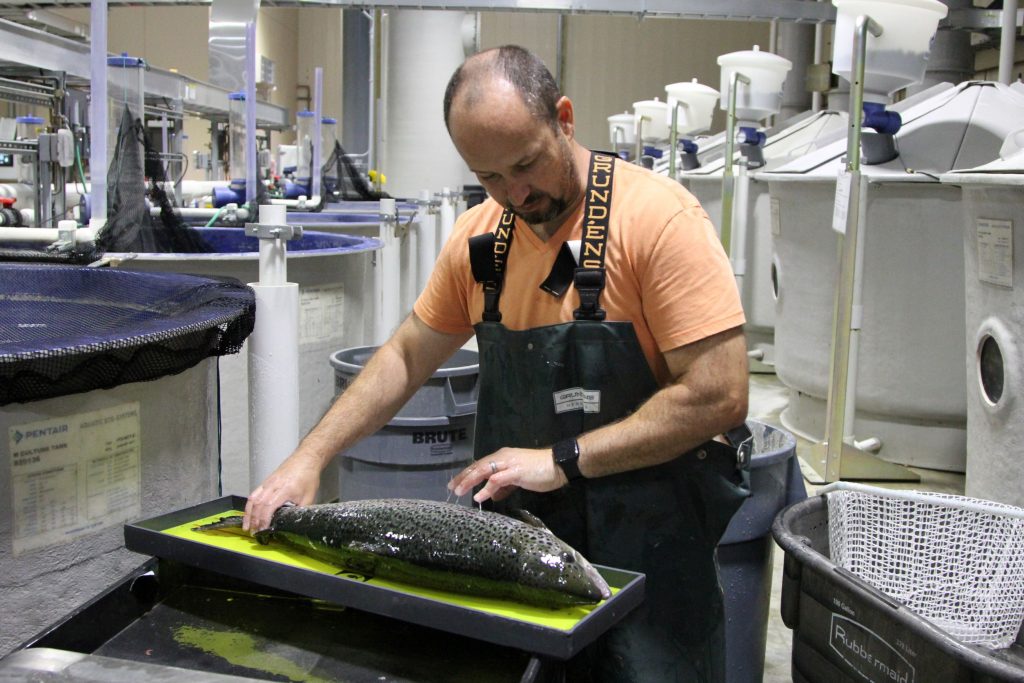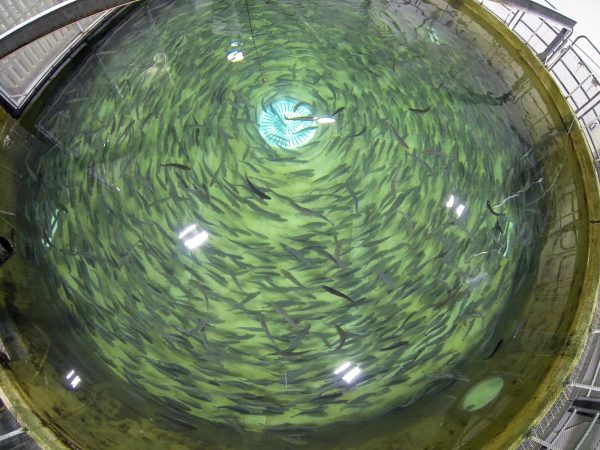
News & Views
Nutrition & Feed products
Recirc
Research
A partnership to improve land-based salmon farming feeds
October 1, 2021 By Hatchery International Staff
 Freshwater Institute research scientist, John Davidson, sampling a large Atlantic salmon for a recent Cargill-Freshwater Institute project. Photo: The Conservation Fund
Freshwater Institute research scientist, John Davidson, sampling a large Atlantic salmon for a recent Cargill-Freshwater Institute project. Photo: The Conservation Fund The Conservation Fund’s Freshwater Institute, an internationally-renowned research and development program focused on recirculating aquaculture systems (RAS), and Cargill, a leader in animal feeds solutions, have announced a multi-year agreement to develop, evaluate, and enhance feeds for the growing land-based aquaculture industry. The partners first began working together in 2018, and this new agreement solidifies the collaboration to 2023 and beyond.
Looking to help farmers accelerate development to meet the increased global demand for salmon, this partnership will build on Cargill’s new diet for Atlantic salmon grown in land-based RAS. To do so, the Freshwater Institute will provide Cargill nutritionists and researchers will access to fish, systems, research facilities, and a team of scientists, engineers, and fish culturists with RAS experience.

A large tank of Atlantic salmon in the semi-commercial RAS at the Freshwater Institute. Photo: The Conservation Fund
“Our customers want the best nutrition possible,” said Dr. Marc Turano, nutrition and technology lead for Cargill Aqua Nutrition in North America. “Partnering with the Freshwater Institute has provided key access to capabilities but more importantly, to renowned thought leaders in land-based aquaculture production and thus, important to the advancement of science in this strategic growth area.”
Additionally, Cargill will provide leading-edge diet development and aquaculture feeds to optimize fish performance. “Diets developed for use in RAS should support optimal fish health and performance while facilitating good water quality and system operation,” said Dr. John Davidson, research scientist at the Freshwater Institute, who is in close collaborations with Cargill Aqua Nutrition. “For example, feeds like Cargill’s recently developed EWOS Clear for land-based salmon farming produced settleable solids in recent research trials that were effectively removed from the recirculating flow, thereby improving the fish culture environment and overall RAS operation.”
Print this page
Advertisement
- Top 10 Under 40: Carlota Castaneda-Cobo
- AKVA strikes up new partnership Israeli investor to build land-based salmon farm





